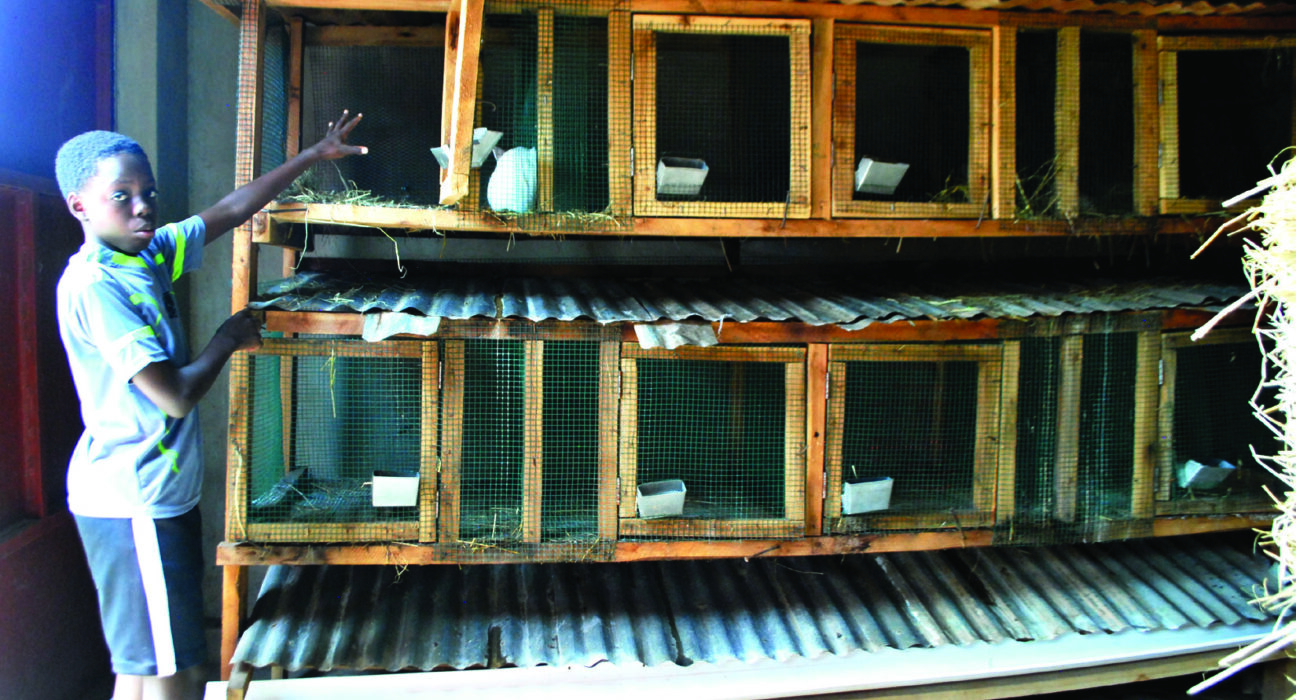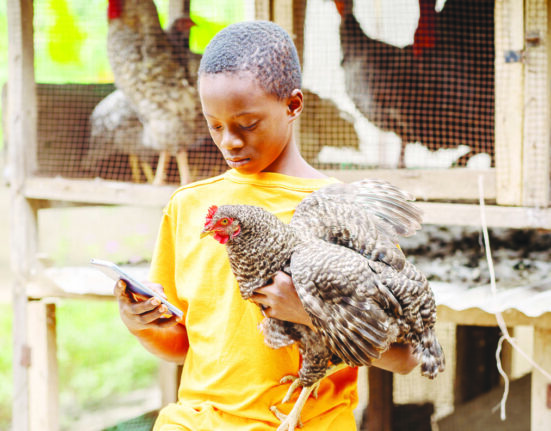This article was first published in Toto Magazine on April 21, 2021
During the COVID-19 lockdown, Joshua Kizito Luzinda read a story in Toto magazine about children who were rearing rabbits. He got interested and requested his mother to get him rabbits. Kizito was joined by his sister Elizabeth Kabiite and elder brother, James Damulira. They started with two local rabbits and six exotic ones, but lost three along the way. The loss saddened them, but they refused to give up. Kizito shared their story with Ritah Mukasa.

Tell us about yourself I am Joshua Kizito Luzinda.
I am 11 years old and in Primary Five at Lohana Academy. My elder brother is James Ddamulira. He is 13 years old and recently completed Primary Seven at the same school. My baby sister is Elizabeth Kabiite. She is five years old.
How did you start?
After reading a story in Toto magazine about a child rearing rabbits, we asked our mum, Milly Mubiru, to get us some rabbits. She bought two male ones at sh10,000 each. Sadly, after a few weeks, one escaped and it was eaten by the wild cat.
Wasn’t that a great setback?
Yes it was, but it did not stop us. However, the surviving rabbit became lonely because it had lost a companion. Rabbits love company and attention. We bought another rabbit and it became happy.
How did you grow the farm?
Around that time, mom visited a farm in Kapeeka to learn more about rabbits. She was amazed by the exotic rabbits which are bigger and larger than the local ones. She bought six; one male and five females. Each goes for sh100,000. They also trained us how to look after these rabbits. Mum hired a carpenter who made for us a large cage with compartments.
Did you find any challenges looking after them?
One rabbit delivered six babies. However, its milk was not enough so we fed the kittens on cow milk through small bottles. Unfortunately, they died; one after the other. Shortly after, two of the big ones and the local ones also died of pneumonia. It was a huge setback, but we did not give up. The veterinary doctor told us that pneumonia spreads through the water system. He treated the surviving rabbits and advised us to monitor how they feed and behave. Thank God they are well.
How big is the farm?
We have four exotic rabbits. One will deliver soon and we are excited to receive the babies. We have prepared for them clay pots with cottonwool. The mother will not bother with warming them.
How do you feed the rabbits?
We used to feed them on pellets, but realised they clogged the animals’ throats. They could not digest other foods. We now feed them on hay, water and vegetables such as cabbage. Besides, the rabbit’s teeth do not stop growing. So, we also give them hard food such as carrots to trim the teeth from overgrowing. We also scrub the cages with water and soap daily because their waste attracts maggots.
Where do you get information about rabbits?
We have mastered how to feed and protect the rabbits to add to the doctor’s advice. We have mastered to feed and protect them from diseases. We also keep records of the food they eat, treatment and babies they deliver.
Any challenges?
Rabbits waste food, especially the expectant females. They scatter hay to prepare for delivery. They also feed all the time even at night.
Advice to children
Rabbits are lovely pets and moneymaking animals. They will also keep you busy and teach you care for animals. We got attached to them that their death saddens us.
Facts About Rabbits
- The female rabbit is called a doe and the male is a buck. The baby is a kitten.
- Giving birth is called kindling.
- Rabbits are born with their eyes and ears sealed and completely furless.
- Their urine is loved by farmers for being nutritious. We collect it for sale










Leave feedback about this